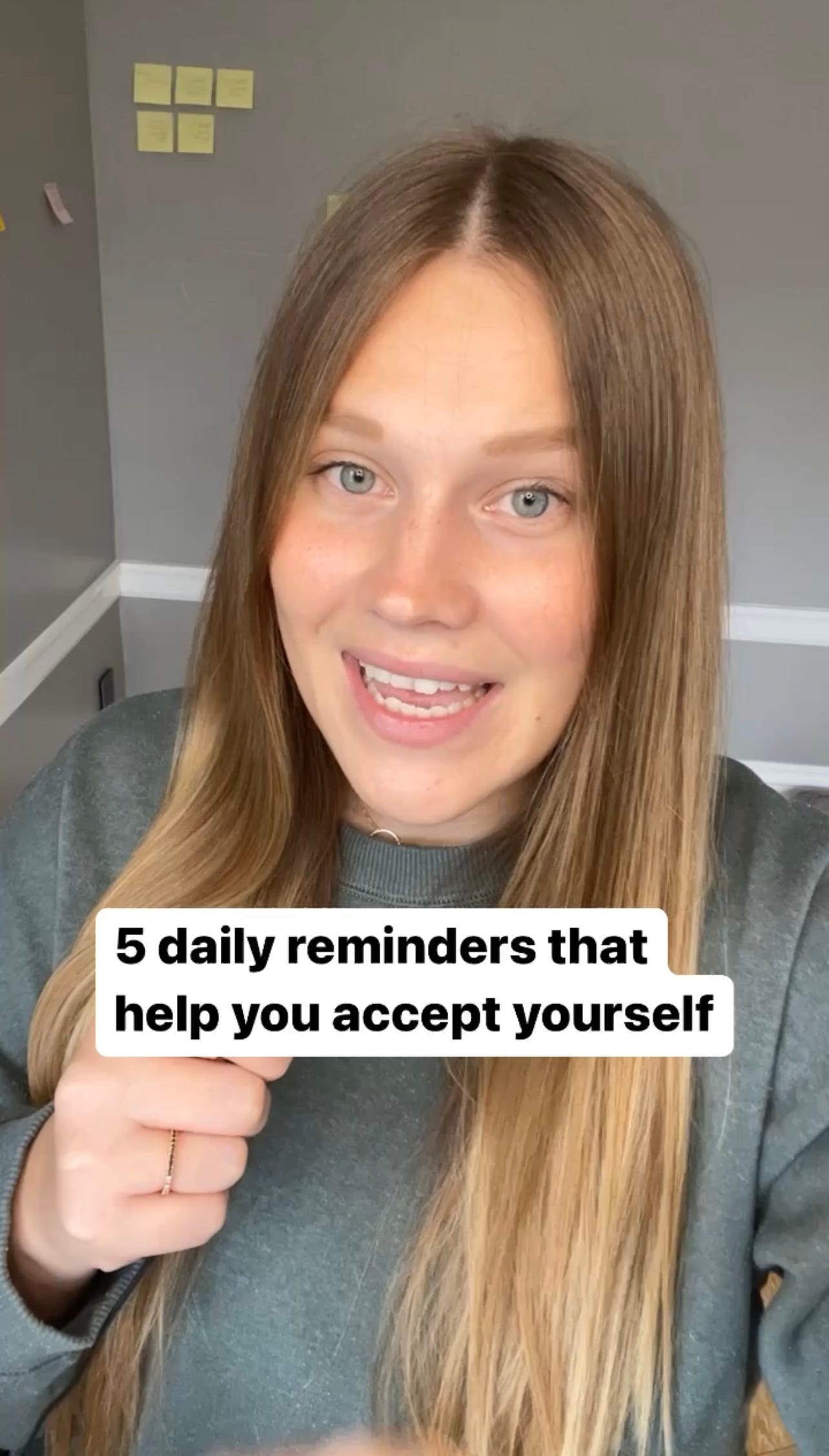5 Daily Reminders that Will Help you Accept Yourself
You can't change what you don't accept, start your recovery journey from people-pleasing here.
In today's video, I share 5 daily reminders that help you accept yourself, which is key for anyone who wants to heal and create a better version of themselves.
Your needs are valid, even if they differ from what other people need.
You're enough just the way you are, and it's not your fault if the people around you can't make you feel that way.
Being sensitive doesn't mean you're weak. It simply means that you feel your feelings deeply.
There is often a reason why you struggle to say "no.” Now that it's bugging you, it's just a sign that you're outgrowing whatever held you back.
Everybody makes mistakes; what counts is to go back, apologize and repair.
Before you continue reading in-depth explanations of each point, I want to ensure that you fully understand why acceptance is vital when implementing any change.
Why is acceptance important to create a better and healthier version of yourself?
Acceptance is the ultimate paradox: We cannot change who we are until we accept ourselves the way we are. -Melody Beattie (Book: Codepdendent No More)
Acceptance is vital to the healing/recovery process because it means recognizing and acknowledging difficult experiences, feelings, and situations rather than suppressing or ignoring them. More specifically, it allows you to let go of blame, shame, and judgment, which often keep us stuck.
When we can accept where we are, we begin to lower our resistance to the difficult feelings that come up, and we can start to process them and work through them.
Practicing acceptance also means becoming more present as you learn to focus on where you're at right now and spend less time worrying about the past and future.
Also, when we accept our current situation, we can view it more objectively, helping us identify the steps we need to take to inflict change.
In short, accepting where you're at means accepting reality for what it is, which is fundamental to change.
Let's dive deeper into each point:
Your needs are valid, even if they differ from what other people need.
People-pleasing often starts in childhood or when we find ourselves in extremely unhealthy relationships as adults. We often start people-pleasing because we get the message (directly or indirectly) that something is wrong with us. This belief drives us to suppress our feelings and needs as we deem them wrong or inappropriate. Because we desperately want to feel connected, we start looking to others and becoming who we think we need to be or who others want us to be.
To recover from people-pleasing, it's important to acknowledge that there is nothing wrong with you but that, most likely, you were made to feel that way by your environment. Your feelings aren't wrong, and neither are your needs.
As humans, we all share the same needs. How much of each need we need to feel fulfilled depends on two factors. First, we naturally need different amounts of the same needs. For example, if you're physically disabled, you most likely need more support from others. Or if you're highly sensitive, you may need more rest than others. Second, if you've grown up not getting some needs met consistently, your need for that specific need becomes larger as an adult. For example, if you grew up feeling emotionally disconnected from your family, you most likely grew up to be an adult with a bigger need to feel emotionally connected than someone who felt emotionally connected to their parents.
The bottom line is we all have the same needs, but how much of each need we need is unique to all of us. I like to think of it this way: If we made a smoothy for each of us based on our needs, we would all use the same ingredients but different amounts of each. So our smoothies will all be different.
Remind yourself daily that you're needs are valid even if they differ from what others need.
You're enough just the way you are, and it's not your fault if the people around you can't make you feel that way.
As people-pleasers, we often feel that we are not enough. In my opinion, this is often related to our deep-rooted belief that something is wrong with us. It's important to recognize and accept that we may not feel enough, so we can start healing that part of ourselves.



